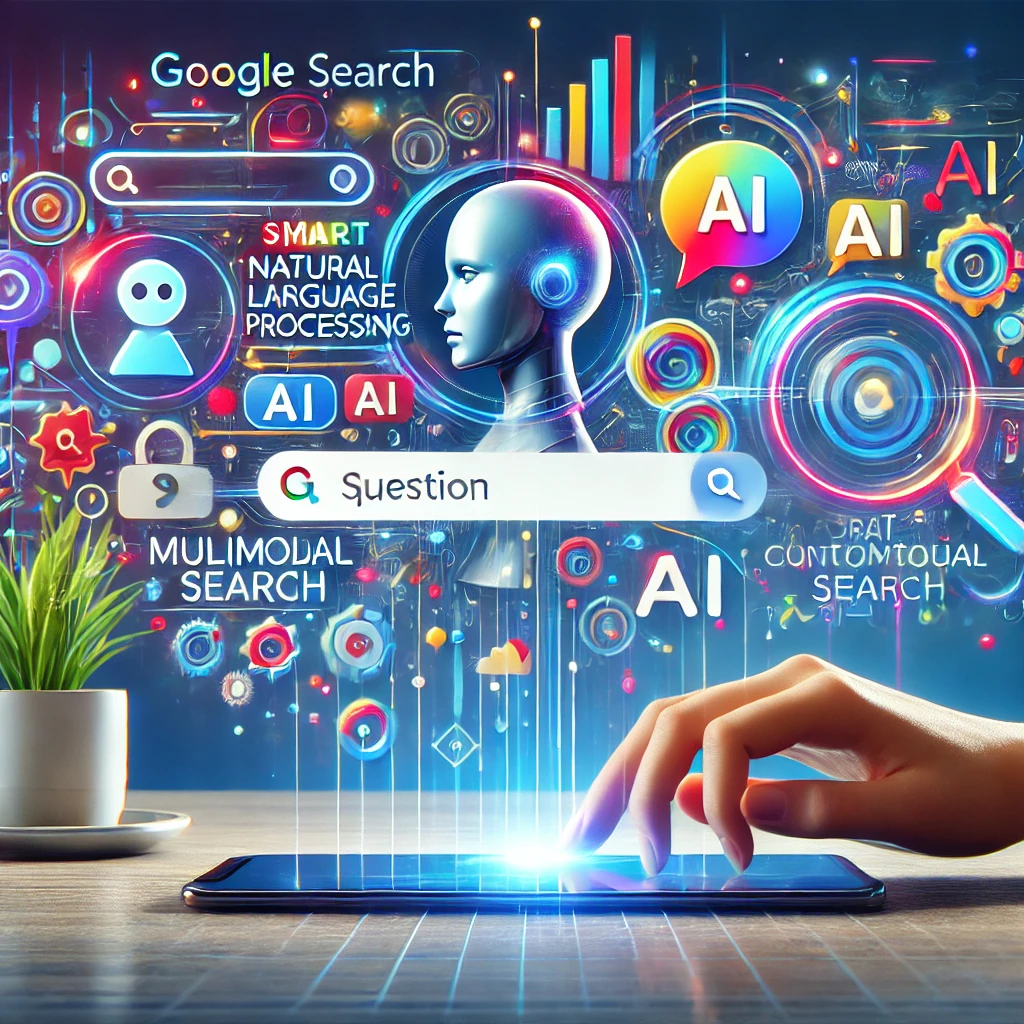Google has long been the go-to tool for finding answers to virtually any question. But as artificial intelligence (AI) continues to evolve, Google Search is getting smarter—and more conversational. With recent AI-driven updates, Google is enabling users to ask questions in new, more natural ways, providing answers that are not only more relevant but also deeply contextualized.
This shift represents a significant leap forward in search technology, marking a transition from simple keyword searches to more dynamic interactions with AI that can understand the intent behind your questions. Here’s how these new capabilities are changing the way people engage with Google Search.
The Power of Natural Language Understanding
One of the key advancements in Google Search’s AI capabilities is its improved ability to interpret natural language. This means users no longer have to think in terms of keywords but can phrase their queries the same way they would if they were talking to a person. Instead of typing fragmented keywords like “best laptop 2024 reviews,” users can now ask, “What’s the best laptop to buy in 2024 for video editing and gaming?”
The AI can parse the query, understand the underlying intent, and provide more personalized, contextually relevant responses. This development is rooted in advances in natural language processing (NLP), a branch of AI that allows machines to understand and respond to human language in a way that feels intuitive.
Conversational Search: More Than Just Answers
With the introduction of conversational search features, Google is turning search into an ongoing dialogue. Rather than treating each search query as a standalone task, users can now ask follow-up questions or refine their initial queries without having to start from scratch. For example, after searching for “best hiking trails near me,” you could follow up with, “What’s the easiest trail?” or “Which trail is dog-friendly?” without needing to repeat the context.
Google’s AI keeps track of the conversation, so it understands the evolving nature of your inquiry, offering more seamless and accurate responses. This makes the search process feel more like a conversation and less like a series of disjointed searches.
Multimodal Search: Visual and Text-Based Queries Combined
Another breakthrough feature is Google’s multimodal search, which allows users to combine visual inputs with text queries. With AI, you can now upload an image and ask questions about it directly. For instance, if you take a picture of a piece of furniture, you could ask, “What style is this chair?” or “Where can I buy something similar?”
This blending of visual and text-based inputs makes it easier to get specific answers, especially when you don’t know the exact words to describe what you’re looking for. It’s a game-changer for scenarios like identifying plants, landmarks, or even products you want to find online.
Richer, More Contextual Answers
AI enhancements in Google Search are also making the answers more comprehensive. Instead of simply returning a list of links, Google is using its AI to curate rich, detailed responses that pull from various sources. This includes offering step-by-step guides, summarizing complex topics, and providing deeper insights based on user preferences or previous searches.
For example, if you’re looking for tips on baking a cake, Google’s AI may provide a detailed recipe along with alternative ingredients, video tutorials, and even a list of nearby stores where you can buy the necessary items. It’s about giving users more than just a surface-level answer—Google now aims to become a more helpful and proactive guide.
AI-Driven Personalization
As Google’s AI continues to improve, search results are becoming more personalized. By learning from your search history, location, and even the way you phrase your questions, Google can offer tailored results that better fit your specific needs. For instance, if you’re searching for restaurants, Google can take into account your dietary preferences, previous dining history, and location to suggest places you’ll likely enjoy.
This personalization is not just about providing relevant information, but also about anticipating user needs. The AI can learn and adapt to your preferences over time, making search a more personalized and efficient experience.
A New Era of Search
These AI-driven innovations represent a new era for Google Search—one where users can ask questions in ways that feel more natural and conversational. Whether it’s engaging in a dialogue with the AI, combining images with text for more precise queries, or receiving richer, more contextual answers, Google is redefining how we find information.
For users, this means a smoother, faster, and more intuitive search experience. For Google, it’s another step towards its goal of making information universally accessible and useful, powered by cutting-edge AI technology.
Conclusion
As AI becomes more deeply integrated into Google Search, the ways we interact with information are evolving. With the ability to ask questions in new ways, from conversational follow-ups to multimodal inputs, users can expect smarter, more personalized, and context-aware results. This marks an exciting shift toward a future where search engines feel more like intelligent assistants, helping us navigate the vast world of information with ease.


